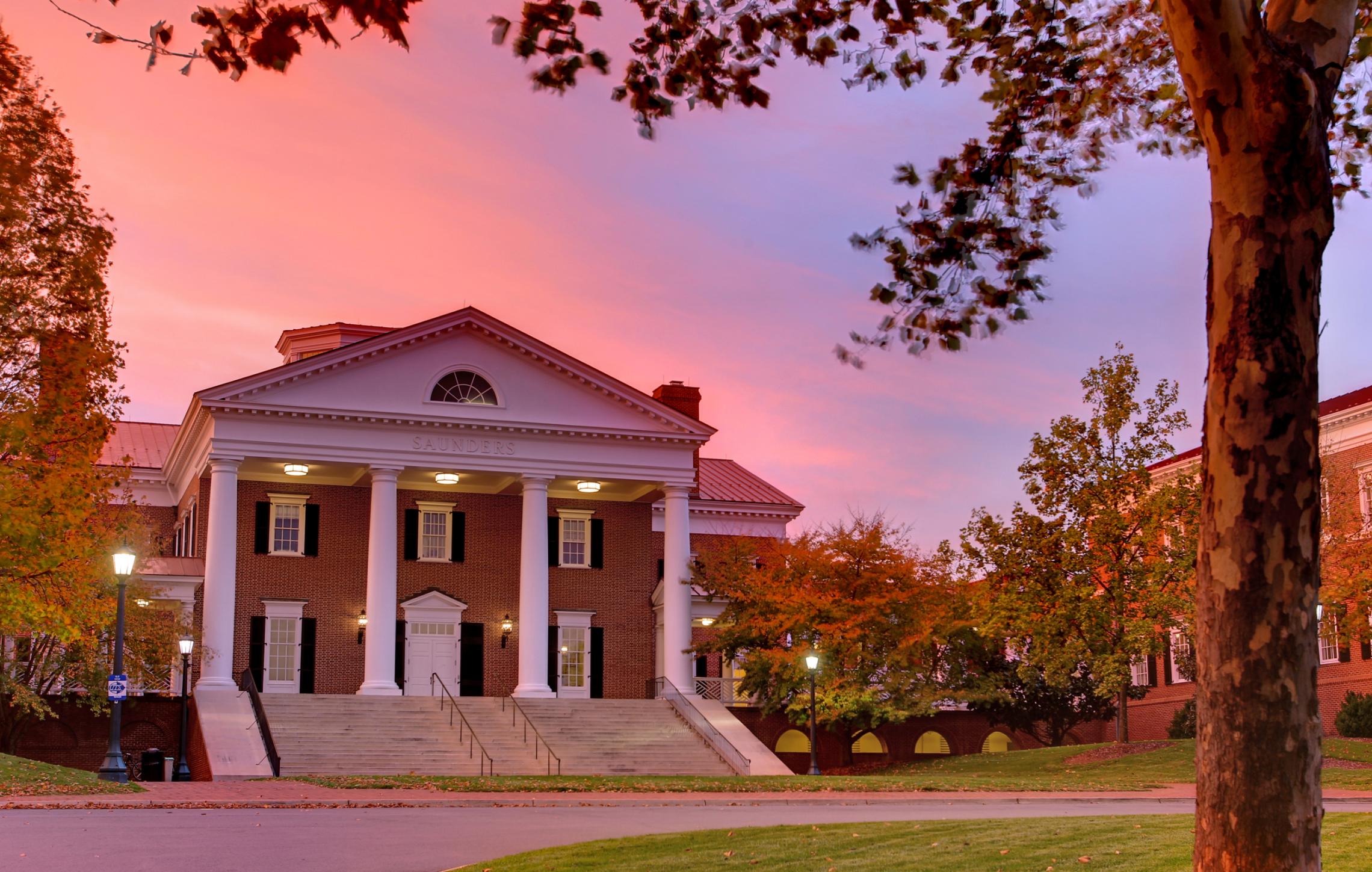The Top Deferred Enrollment MBA Programs

In the past several years, we’ve seen more and more leading business schools offering deferred enrollment MBA programs.
Traditionally, full-time work experience has been a requirement for acceptance into a leading MBA program, with students averaging five years of professional experience at the time they begin their graduate studies.
Most deferred enrollment programs still require work experience—the difference is that students can gain this experience after they earn admission. Deferred enrollment MBA programs guarantee college seniors (and sometimes graduate students) a spot in their MBA programs, allowing them to enroll two to five years after they graduate from college. This allows students to focus on their work experience with their MBA plans already in place.
Read on for information about deferred enrollment programs at:
- Berkeley Haas
- Chicago Booth
- Columbia Business School
- Harvard Business School
- MIT Sloan
- Northwestern Kellogg
- Stanford GSB
- UVA Darden
- The Wharton School
- Yale School of Management
How Deferred Enrollment Programs Work
“This type of program is for those who know that an MBA program is something they want to pursue in the future. Not directly after their undergraduate degree (in most cases), but a couple of years later,” explains Alex Brown, an MBA admissions expert at Clear Admit.
Ambitious undergraduate students apply to b-school during their senior years and then receive a promise of a seat in a future cohort. Typically, they are required to gain two to five years of full-time work experience between being accepted and starting an MBA. Once they do enroll, they join the same MBA cohort as those admitted through the traditional application process.
“Applying and gaining admission during college helps reduce the uncertainty of their plan going forward. So rather than entering an analyst program at a consulting firm, for example, with the hope of gaining admission to a top MBA program after a few years, new graduates can enter the program knowing they have an MBA option already,” says Alex. “Of course, it doesn’t stop them from changing their minds, or pursuing other MBA options and forgoing the early admission.”
These deferred enrollment programs are ideal for candidates with established leadership skills. Typically, candidates have outstanding internships, strong academic credentials, and high test scores when they apply. “Also, these candidates are still typically early in their career arch when they start their MBA programs. But, it makes sense if they are focused and really understand how the MBA program will help develop their career further,” explains Alex. “It’s good for candidates with focused career goals.”
Additionally, it’s worth noting that deferred admissions MBA programs are open to applications from students of all academic backgrounds. In addition to the finance, business, and economics majors, who are well represented in the traditional MBA applicant pool, deferred enrollment programs welcome those from a STEM or humanities backgrounds. Whatever their major, the key for applicants is to have a solid plan for the future and a good sense of how an MBA fits into that plan.

Deferred Enrollment Programs at a Glance
So, what are some of the top deferred enrollment programs and how do they vary?
At a glance, the structure of most deferred enrollment MBA programs are similar. All but Yale SOM are two years in length and place students in the same cohort as the full-time MBA. On the other hand, the Yale Silver Scholars program is three years in length, with the first and third year being the same as the standard MBA and the second year being an extended internship. The reason behind this difference is that the program accepts candidates directly after their undergraduate career without any work experience.
The rest of the programs require that students gain two to five years of full-time work experience before they start their MBA studies. However, in some cases, work experience is not required if the student is currently completing another graduate degree (this is the case for Stanford’s program).
“Generally, the students co-exist in the same program” as those admitted through the traditional process, explains Alex. “Younger students might have more energy and enthusiasm, older candidates might have more experience and insights. It can become a great blend for an academic experience.”
Another key distinction is eligibility; the Haas Accelerated Access and Wharton Moelis programs are only open to UC Berkeley and University of Pennsylvania students, respectively. In 2019, Wharton added another deferred admissions program for students from any institution, not just Penn. MIT Sloan allows MIT students with an undergraduate GPA of 4.25 to waive the GMAT, and UVA Darden, Haas, and Wharton all offer scholarships for their deferred programs.
Deadlines for each of these programs tend to fall April, around the Round 3 MBA application deadlines.
Inside the Deferred Enrollment MBA Programs at Leading Business Schools
Here’s a deeper look at the details of each school’s deferred enrollment MBA structure, eligibility, and application requirements.
Berkeley Haas Accelerated Access
The Berkeley Haas Accelerated Access program is currently only open to UC Berkeley undergraduate and graduate students in their final year of study—though there are plans to expand to the rest of the University of California and beyond in the future. The program offers early conditional admission into the Full-Time MBA program with the ability to defer for two to five years to gain professional experience. There are two application deadlines—one in April and one in June—with an application process very similar to the full-time MBA program, except the application fee is waived.
Application requirements include the application form, university transcripts, two short essays, two recommendations, a resume, and the GMAT or GRE. Interviews are then conducted by invitation only. Accepted candidates must make a $500 deposit.
To celebrate the launch of Accelerated Access, up to five $100,000 scholarship awards will be available for students applying in 2020. Upon matriculation, candidates will be eligible for other scholarships and dual degree programs.
Chicago Booth Scholars Program
The Chicago Booth Scholars program is a deferred MBA program for promising candidates looking to secure a seat in a future Chicago Booth full-time MBA cohort. It’s open to undergraduates from any institution in their senior year, and grants admits a two to four-year deferment before they begin the full-time MBA program. While working full time, students have the opportunity to engage with Booth and explore the University of Chicago community. If candidates prefer to continue working after four years, they have the opportunity to enroll in the Evening or Weekend MBA programs.
Applications are due in April, and are similar to the full-time MBA application. Application requirements include a data form, short answers, an essay, two recommendations, unofficial transcripts (official copies required of admitted students), and professional resume. International students must take the TOEFL, unless their undergraduate degrees were conducted in English. All applicants must take the GMAT or GRE; there is no preference given to either test. Interviews are then conducted on an invitation only basis.
Columbia Business School Deferred Enrollment Program
The Columbia Business School Deferred Enrollment program is open to undergraduate and Master’s students who apply during their final years of study. (Students enrolled in Ph.D. programs, law school, or medical school are not eligible.) Once accepted, they can take two to five years to enter the workforce, and start the full-time MBA program when it’s right for them. To begin the program, candidates simply send the school a letter of intent to Columbia indicating whether they want to enroll in January (16-month program) or August (20-month program with summer internship). Admitted students gain access to conferences, events, and school-wide resources prior to matriculating.
Applications are due by mid-April, and requirements include a data form, short answer questions, an essay, two recommendations, academic transcripts, and professional resume. All applicants must take the GMAT, Executive Assessment, or GRE within three weeks of applying. Interviews are then conducted on an invitation only basis. CBS releases decisions on a rolling basis, within two weeks of the interview.
In 2019, 114 candidate were admitted to the CBS Deferred Enrollment Program. Their GMAT scores ranged from 640-790, and GPAs ranged from 2.92-4.0. Forty-nine schools and 11 countries were represented in this incoming class.
Harvard Business School 2+2 Program
Harvard’s 2+2 program is perhaps the best-known deferred MBA. Candidates apply in their final year of undergraduate or graduate school, then spend a minimum of two years (maximum of four) working full-time before they begin Harvard’s full-time, two-year MBA program. This program is open to students who plan to work in the public, private, or nonprofit sector, with preference given to applicants planning to work in an operating company (tech, manufacturing, consumer goods, retail, industrials, etc.), from a lower socio-economic background, going into a technically demanding role, or pursuing entrepreneurship. Students enrolled in Ph.D. programs, law school, or medical school are not eligible; they should apply through the regular MBA admissions process.
The application is essentially the same as for the traditional MBA program, though the application fee is $100 instead of $250. The application fee is waived for active duty military applicants. The admissions deadline is in April. Candidates may enter the full-time MBA program once they have met work experience requirements.
More than 1,400 candidates applied to be a part of the Class of 2023, and 115 students ultimately committed to the program. Their GMAT scores ranged from 590-790, and their average GPA was 3.79.
Kellogg Future Leaders
Northwestern Kellogg’s Future Leaders program is open to any undergraduate student in their final year of school, as well as Master’s students who began their graduate programs directly after undergrad. Students enrolled in Ph.D. programs, law school, or medical school are not eligible; they should apply through the regular MBA admissions process.
Successful applicants defer their enrollment at Kellogg for two to five years, during which time they are expected to gain relevant work experience. Candidates may also reassess which MBA program to join; while applicants are accepted into the full-time two-year MBA program, they can also choose the Evening & Weekend or One-Year program. They may also expand their plans to consider the JD-MBA or MMM, though those require admission to the other Northwestern schools.
The application requires brief essays, a recommendation, and an interview by invitation; the TOEFL and GMAT/GRE are also conditional requirements. Non-native English speakers must take the TOEFL, unless their undergraduate studies were conducted in English. Northwestern undergraduates do not have to take the GMAT/GRE, but it is required for all other students. While there is no application fee, admitted candidates need to make an initial deposit of $500, then $500 for every year of deferment; these funds ultimately apply to tuition when they matriculate.
MIT Sloan MBA Early Admission
The MIT Sloan MBA Early Admission program is open to any exceptional undergraduate student during the year that they are graduating. Graduate students without full-time work experience may also apply. Between being accepted and starting the program, candidates are expected to seek two to five years of full-time work experience.
Applications are due in April, and requirements include a data form, cover letter, video statement, two recommendations, academic transcripts, and professional resume. All applicants must take the GMAT or GRE, but MIT students can waive the GMAT or GRE if they have a GPA above 4.2. Interviews are then conducted on an invitation-only basis. The application fee is waived for all candidates.
Stanford GSB Deferred Enrollment
The Stanford GSB Deferred Enrollment program is open to undergraduate students who want to begin their MBAs immediately after their senior year. However, students are encouraged to defer for one to three years to gain work experience (two-year deferrals are most common). They can apply during any of GSB’s three application rounds, and can choose which year’s MBA cohort they would like to enter. If they decide to defer for one to two years, they can apply for specific fellowships the year before starting their full-time MBA.
Those eligible for deferred enrollment have their application fee reduced to $100.
UVA Darden Future Year Scholars Program (FYSP)
The UVA Darden FYSP program is open to undergraduate students in their final year, as well as Master’s students. Candidates can apply in January, April, or August. Once admitted, they then go on to gain two to four years of work experience while also gaining access to the Darden alumni community for mentorship, networking, and individualized career support. Then, once ready, candidates join the regular full-time MBA program.
The application requires a GMAT, GRE, MCAT or LSAT score, but applicants are encouraged to take the GRE or GMAT before matriculating. Applicants must also submit a resume, transcripts, an essay, and two letters of recommendation. While there is no application fee, admitted candidates need to make a deposit of $500 for every year of deferment; these funds ultimately apply to tuition when they matriculate.
Wharton Advance Access Program
Undergraduate seniors and graduate students from any institution outside of Penn can apply early for the Wharton MBA through the Advance Access Program. Accepted applicants receive special professional development and career services support, as well as access to the Wharton community including annual retreats and mentoring. Applicants may apply in their senior year during Round Three of the MBA admission timeline, and are evaluated similarly to the overall MBA applicant pool. Candidates defer for two to four years of work experience, and then join the regular two-year, full-time MBA program when they’re ready.
University of Pennsylvania undergraduates, specifically, can apply through the Wharton Moelis program. The benefits mirror those of the Advance Access program, with the added potential for a $10,000 yearly fellowship (or more, based on merit).
While the application fee for the Moelis program is waived, applicants through the Advance Access program must pay a reduced application fee of $100. The application requirements for both options include unofficial transcripts, GMAT or GRE score, a resume, two letters of recommendation, two essays that are the same as the general MBA application, and interviews (Team-Based Discussion & one-on-one). Admitted candidates through either program need to make a deposit of $1,000 at the beginning of June of the year they are accepted, and then another deposit of $1,000 when they decide to matriculate. The school also expects yearly affirmation of intent to attend the program, as well as verification of work experience.
Yale SOM Silver Scholars
Students admitted to the Yale Silver Scholars program start their MBA studies immediately after college graduation. Candidates spend one year completing the core curriculum, and then undertake an extended full-time internship in year two. Then, during the third year, they return to Yale SOM to complete their degree with MBA elective courses. Students are fully integrated into the Yale SOM MBA class, but they have special programming and career development support that’s tailored to them. Candidates apply during their senior years of college.
Applicants complete the same online application as regular enrollment candidates, with nuances in the Work Experience and Activities sections of data form. Yale notes that only college seniors are eligible to apply, and they must submit two letters of recommendation. If invited to interview, candidates will meet with one or more members of the Silver Scholars committee.
This article has been edited and republished from its original source, Clear Admit.
Chicago Booth, Harvard Top The Economist’s 2019 Full-Time MBA Ranking

The Economist 2019 full-time MBA ranking is finally out, with the University of Chicago Booth School of Business—once again—cracking the top spot. This marks the second consecutive year the school stayed on the top of the list.
Continue reading…UVA Students Share MBA Application Advice

Current MBA students are one of the best resources for learning what it takes to get accepted into your target business school. They are recent applicants themselves and, therefore, know what it takes to stand out in the process.
At UVA Darden, rising Second Year students shared a blog filled with MBA application advice for full-time MBA applicants. Here’s what they had to say.
Apply Early
According to Allie Medack, the last thing you should do is wait until the last minute to start the application process. She found business school applications to be highly introspective, and so felt that she needed time to reflect on her experiences and who she was as a multi-dimensional person. “Your genuine excitement will catch the Admissions Committee’s attention and help you shine through the pack.”
Reflect on Your Story
“Let [your story] shine and recognize that it’s all new to anyone who doesn’t know you,” says Max Linden. He believes that every applicant already has many defining moments that to use to demonstrate character, so take advantage of that.
For Christina Wong-Namura that meant not being afraid to dig deep. “For me, I made sure that my highest and lowest points were transparent on my application—and I tried to make my personality shine through despite the word limit.”
Link Yourself to the Program
The question of “Why this school” and “Why me” are intertwined. You can’t explain one without the other, according to Bingjing “Krystal” Yao. You have to talk about your future career in terms of how this particular MBA program will help you. Look at your passions and contributions in terms of how they’ll impact the business school community.

“For me, I made sure that my highest and lowest points were transparent on my application—and I tried to make my personality shine through despite the word limit.”
Ask for Help
You don’t have to go through the application process by yourself. Jordan Hart advises to ask for help, get diverse perspectives, and talk to anyone you can. “There are many people who would be happy to help you as you take this exciting next step in your life—let them,” he says.
At the same time, you still need to make sure that you are self-aware and honest with yourself. While advice is good, be true to who you are and follow your own instincts.
Frame Your Narrative
A well-framed narrative is critical to differentiating yourself from every other applicant. That means it’s vital to showcase your unique experiences based on your early life, education, and career. “Consider of how these experiences play a role in your resolve to apply for an MBA program and to then transition to a successful business role after graduation,” explains Clement Le Royer.
More MBA Application Advice from Students
Five more UVA Darden MBA students offered advice in the original blog. Here’s just a quick overview.
- Connect with friends and family during your application process, says Chloe Stegeman.
- Craft a personal positioning or brand statement, advises Pierce Lee.
- Don’t obsess over online forums. Instead, focus on running your own race, recommends Temi Adekanbi.
- Take time to step away from your essays after you write them to gauge the clarity of your response, says Teresa “Tess” Engebretson.
- Choose an MBA program where you are celebrated, not just tolerated, says AJ Amankwaa.
This article has been edited and republished with permissions from its original source, Clear Admit.
University of Virginia Announces Upcoming MBA Deadlines

Hopeful applicants to the next full-time MBA class at the University of Virginia Darden School of Business have some new deadlines to remember.
New UVA MBA Deadlines
Early Action
Application Deadline: Sep. 3, 2019
Admissions Decision: Oct. 9, 2019
Round One
Application Deadline: Oct. 4, 2019
Admissions Decision: Dec. 11, 2019
Round Two
Application Deadline: Jan. 6, 2020
Admissions Decision: March 18, 2020
Round Three
Application Deadline: April 6, 2020
Admissions Decision: May 6, 2020
Best Real Estate MBAs in the Mid-Atlantic Region

After World War II, a housing boom created a demand for real estate business expertise. Decades later, demand only increased in the wake of the 2008 financial crisis. Now with unprecedented levels of international real estate investment at play, demand for this specialization has reached a fevered pitch.
This rings particularly true for investments in the Mid-Atlantic region where many top real estate MBA programs are headquartered.
Best Mid-Atlantic Real Estate MBAs

Located in Charlottesville, UVA’s Darden Graduate School of Business consistently ranks among the top MBA programs nationally. In addition to Darden’s Real Estate specialization, the Real Estate Club offers alumni connections, internship info sessions, ARGUS training, LEED certification study sessions, and “case competition preparatory sessions.”
The Real Estate Club also participates in the Darden Finance Conference, offering participants the chance to connect with real estate executives in the financial sector. UVA offers in-state tuition of $94,524, $97,524 for non-residents, and $98,796 for international students. Ninety percent of graduates are employed after graduation with a median base salary reported at $125,000.

One out of 10 UNC Kenan-Flagler Business School MBAs complete the school’s Real Estate Concentration, making it one of the largest programs of its kind in the nation. Real Estate MBA students choose from development and/or finance/investments tracks. Here are just a few of the available courses:
- Argus Certification Training
- Financing Real Estate in Today’s Capital Markets
- International Real Estate Investment
- Real Estate Law
- Real Estate Macroeconomics
- Securities Markets
Kenan-Flagler tuition is a hefty $132,648 but the average starting salary is reported at $116,543 with 11 percent of placements in Real Estate.

Founded in 2005, the George Washington School of Business Center for Real Estate and Urban Analysis (CREUA) strives to offer a high-caliber real estate curriculum to both GW graduate and undergraduate students. The Center also conducts real estate research on “walkable urban place development and management,” for which a graduate certificate is offered to MBAs. Tuition at GW is $105,700 and the average starting salary is $96,000.

The University of Maryland at College Park was among the first schools to offer the MRED degree. At UMD Smith, MBA candidates have the option to pursue an MBA/MRED dual degree. Dual degree candidates can expect to begin their studies with MBA coursework and then cross over to MRED focus as the program progresses.
Full-time MBA students can expect to pay $44,766 per year for in-state tuition, while out-of-state students can expect to pay $53,946. Smith reports that 95 percent of its graduates are employed within six months of graduation with an average salary of $114,845.

Georgetown University’s McDonough School of Business is home to Steers Center for Global Real Estate, which aims to provide its MBA students an “industry-grade education that produces students who are uniquely competitive in the global real estate job market.”
The Center’s major selling points are its diversified Four Quadrant curriculum model, immersion in the Washington DC market, and the Real Estate Clinic.
Tuition is $59,700, with an average salary of $116,946 and 98 percent percent of employment-seeking students receiving a job offer within three months of graduation.
School v. School: UVA Darden v. Duke Fuqua

When you have two top MBA programs on your list that seem almost precisely the same at first glance, how do you choose the right program for you? You can’t just close your eyes and point to one, hoping for the best. Instead, you need to narrow down each program to the essentials that matter most to you such as location, rankings, cost, employment, and offerings.
Our School v. School series offers a point-by-point comparison of two highly respected MBA programs on the east coast: UVA Darden School of Business and Duke Fuqua School of Business. Read on to find out how these two schools stack up to each other. Continue reading…
